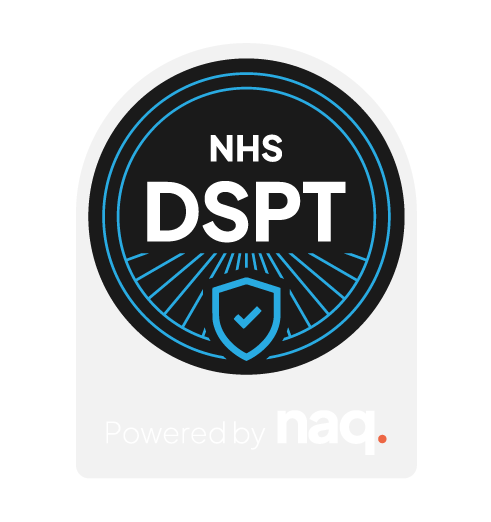DESCRIPTION
Explore the transformative impact of technology in children's care with our latest article. Uncover how innovative digital systems are reshaping the landscape of care management, from real-time monitoring to data-driven decision-making. Learn how customizable platforms enhance collaboration among stakeholders, ultimately empowering caregivers in providing personalized, high-quality care. Dive into the future of child advocacy as technology not only meets regulatory standards but elevates the standard of care in children's facilities.
When
January 2024
Who
George Clark

Introduction
In the dynamic landscape of children's care management, the integration of technology has become instrumental in revolutionizing the way care facilities operate. This article delves into the pivotal role of technology in enhancing children's care, with a focus on comprehensive record-keeping systems. By exploring how technology empowers child advocacy, we unravel the ways in which innovative tools contribute to better outcomes and the overall well-being of children in care.
Digital Transformation for Efficiency:
In an era dominated by technology, the transition from manual record-keeping to sophisticated digital systems has brought unprecedented efficiency to children's care homes. Digital platforms streamline administrative tasks, enabling caregivers to devote more time and attention to the children they serve. This increased efficiency translates into enhanced care quality and improved outcomes.
Real-Time Monitoring and Reporting:
Modern technology facilitates real-time monitoring of a child's activities, health, and development. Caregivers can utilize mobile apps and connected devices to instantly record and access crucial information. This capability not only ensures timely interventions but also provides stakeholders with immediate insights, promoting a proactive and responsive approach to child care.
Data-Driven Decision Making:
Digital record-keeping systems generate a wealth of data that, when analyzed, can inform data-driven decision-making processes. By leveraging analytics tools, caregivers can identify trends, assess the effectiveness of interventions, and continuously refine care strategies. This data-driven approach contributes to a more adaptive and evidence-based care environment.
Enhanced Collaboration Among Stakeholders:
Technology facilitates seamless communication and collaboration among all stakeholders involved in a child's care, including caregivers, educators, healthcare professionals, and parents. Shared platforms and secure communication channels enable real-time updates, fostering a collaborative environment where everyone is on the same page regarding the child's progress, challenges, and achievements.
Customizable and Accessible Platforms:
Digital record-keeping systems offer the flexibility of customization to meet the unique needs of each child. Care plans, educational strategies, and health protocols can be tailored, ensuring that every child receives individualized attention. Additionally, the accessibility of these platforms ensures that information is readily available to authorized individuals, promoting transparency and open communication.
Conclusion:
The integration of technology into children's care management, particularly through comprehensive record-keeping systems, marks a significant leap forward in child advocacy. From enhancing efficiency and real-time monitoring to fostering collaboration and enabling data-driven decision-making, technology is a powerful ally in creating a more responsive and effective care environment. As we embrace these advancements, we pave the way for a future where technology not only meets regulatory requirements but also elevates the standard of care, ensuring the holistic development and well-being of every child under the care of these progressive facilities.
In the dynamic landscape of children's care management, the integration of technology has become instrumental in revolutionizing the way care facilities operate. This article delves into the pivotal role of technology in enhancing children's care, with a focus on comprehensive record-keeping systems. By exploring how technology empowers child advocacy, we unravel the ways in which innovative tools contribute to better outcomes and the overall well-being of children in care.
Digital Transformation for Efficiency:
In an era dominated by technology, the transition from manual record-keeping to sophisticated digital systems has brought unprecedented efficiency to children's care homes. Digital platforms streamline administrative tasks, enabling caregivers to devote more time and attention to the children they serve. This increased efficiency translates into enhanced care quality and improved outcomes.
Real-Time Monitoring and Reporting:
Modern technology facilitates real-time monitoring of a child's activities, health, and development. Caregivers can utilize mobile apps and connected devices to instantly record and access crucial information. This capability not only ensures timely interventions but also provides stakeholders with immediate insights, promoting a proactive and responsive approach to child care.
Data-Driven Decision Making:
Digital record-keeping systems generate a wealth of data that, when analyzed, can inform data-driven decision-making processes. By leveraging analytics tools, caregivers can identify trends, assess the effectiveness of interventions, and continuously refine care strategies. This data-driven approach contributes to a more adaptive and evidence-based care environment.
Enhanced Collaboration Among Stakeholders:
Technology facilitates seamless communication and collaboration among all stakeholders involved in a child's care, including caregivers, educators, healthcare professionals, and parents. Shared platforms and secure communication channels enable real-time updates, fostering a collaborative environment where everyone is on the same page regarding the child's progress, challenges, and achievements.
Customizable and Accessible Platforms:
Digital record-keeping systems offer the flexibility of customization to meet the unique needs of each child. Care plans, educational strategies, and health protocols can be tailored, ensuring that every child receives individualized attention. Additionally, the accessibility of these platforms ensures that information is readily available to authorized individuals, promoting transparency and open communication.
Conclusion:
The integration of technology into children's care management, particularly through comprehensive record-keeping systems, marks a significant leap forward in child advocacy. From enhancing efficiency and real-time monitoring to fostering collaboration and enabling data-driven decision-making, technology is a powerful ally in creating a more responsive and effective care environment. As we embrace these advancements, we pave the way for a future where technology not only meets regulatory requirements but also elevates the standard of care, ensuring the holistic development and well-being of every child under the care of these progressive facilities.



